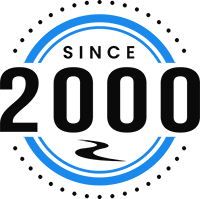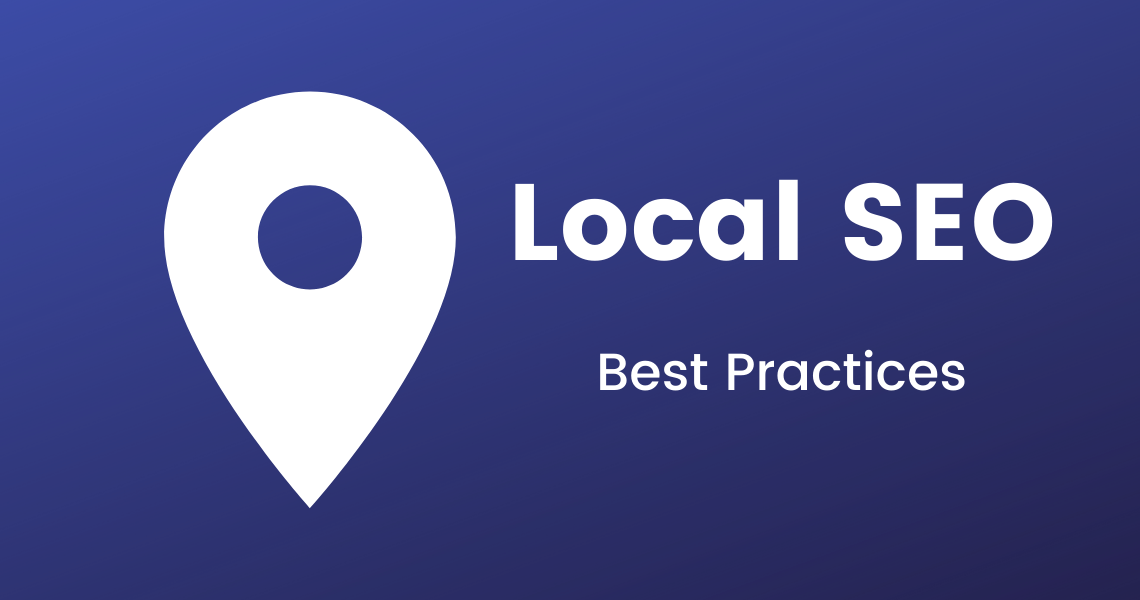How to Improve Your Local SEO
Local SEO is both a powerful and underutilized facet of search engine optimization. Local businesses that skip out on local SEO lose out on tons of traffic - both online and offline. With an adequate localized online strategy, businesses will see an increase in the amount of people visiting their physical location.
SEO marketing is all about increasing your visibility online. Local SEO services focus on getting your website seen by searchers in your area at the exact moment they're looking for you. While "standard" SEO companies work around Google's organic algorithm, local SEO solutions are based on the algorithm that Google uses to return local search results.
Having certain website features properly optimized is a good way to get ahead of your online competition. Your website needs local search engine optimization if:
- You have a physical location.
- You service people in a particular region.
Another way to determine if you need local SEO services is to search for some of your keywords. If you see a map pack, you need local SEO. Here's an example of a map pack for the query "local SEO consultant in Warwick RI"

Appearing in these map packs is a huuuge advantage.
76% of people who conduct a local search on their phone visit a business within 24 hours. And 28% of those searches result in a purchase. Ranking highly in the map pack = more leads and sales. Local SEO services also helps your site show up in the local organic search results and on popular navigation apps like Apple Maps and Google Maps.
Local SEO Ranking Factors
Nobody knows the exact algorithm that Google uses but we try to understand what the most important ranking factors are. There are lots of different local SEO strategies that local businesses can implement and they differ pretty largely among different industries. For example, the solutions that would work for an SEO company differ entirely from the strategies that would work for a doctor.
In the same sense, the local SEO services that work in one area aren't guaranteed to work in another. You'd do different things for an SEO company in Rhode Island than for one in California.
In any case - the following are some of the most significant local SEO ranking factors.
- Location/Proximity
- Links
- On-Page Content
- Google My Business
- Reviews
- Behavioral Signals
- Citations
Location/Proximity
The location of your business and its proximity to a search is a significant local SEO ranking factor. The radius for appearing in local search results varies for diferent industries and locations. The radius for showing up for "SEO company" in Warwick, RI is going to be bigger than it is in NYC. This isn't really something you can optimize for but it's good to know.
Links
Having backlinks is super important in both Google's traditional algorithm and its local algorithm. The power placed on having backlinks makes sense. When a website links to yours, they're telling search engines that you have quality content. The more backlinks your website has, the more trustworthy you are to Google, and the more likely they are to return your website as a result to a search.

In traditional SEO we aim for backlinks from high authority domains. This means they have tons of inbound links, a bunch of great content, and an SEO friendly website design. There are links tools that will score this, and big sites with lots of authority have a higher score.
Since local businesses have smaller websites without a ton of domain authority, this isn't really important. That doesn't mean you can get away with spammy links, but that you should aim to get links from other local businesses. Local links are super valuable for local SEO.
Your competitors will notice your visibility improve and may start analyzing your strategy. They'll use these links tools that will tell them that your links are of low value and will move on none the wiser.

In traditional SEO we don't like nofollow links. But follow vs nofollow links are a nonfactor in local SEO. If I've lost you, check out our SEO glossary for follow link and nofollow link definitions.
It's speculated that brand mentions may be considered "implied links." In other words, when your business is mentioned online, it might be treated like a link. Despite being nofollowed, mentions of your business name, address, and phone number will help your local rankings.
Sooo how can you go about getting local backlinks? You can probably get some from things you're doing in your community already. Look into local newspapers and media that do local features. Get involved with some local groups that have regular meetups. Sponsorships are a good way to get some backlinks too. Reach out to other local businesses that might have a "Businesses We Love" page or something of the sort.
Check out what backlinks your competitors have. If a site is linking to your competitor, they'll probably link to you too. But you'll need unique backlinks to get ahead. Check out similar businesses in other cities when you're brainstorming ideas to find something you may not have noticed if you only looked at sites in your area.
On-Page Content
Your content has always been and will always be a primary SEO ranking factor. If you want to rank for a keyword, you'll need a page on your site about it. All the standard technical on-page elements matter too. Get more information about on-page SEO here.
Title tags should include the page's target keyword and the city/state abbreviation. For example, the page title of this blog is "Local SEO Best Practices | Warwick, RI Local SEO Services." Don't waste space by putting your business name since you'll rank for that term anyway.
H1 tags should have the same keyword phrase and city/state abbreviation that's in your title tag - but they shouldn't be identical.
Alt text for your images should aim to include the location keywords wherever possible.
Meta descriptions should include the location keyword phrase. Meta descriptions aren't a local SEO ranking factor but they're an opportunity to advertise that your search result has what users are looking for.
URLs - if it makes sense, add the location keywords here too.

An absolutely critical component of local SEO services is implementing your NAP information - name, address, and phone number. It should be shown clearly on every page of your site, typically in the footer, which is helpful for both users and bots. Don't make people work hard to find your contact information.
Make sure that your NAP info is marked up with schema. Schema markup is code you use to help search engines better understand elements of your site. In this case, these elements are your name, address, and phone number. But take a look at all the kinds of properties you can fill out for your local business schema.
Now - write local content!!!!
Don't just mindlessly throw in your location keyword into the text. You should naturally mention your location conversationally. You can do that by having a "Businesses We Love" page, writing detailed directions, doing some local case studies, writing about local events, and doing some relevant interviews.
If you write truly local content, you won't have to do any extra optimizations in the sense that you'd need to add any more geo term keywords into your text. Read your content out loud. Highlight what makes you unique and better. Avoid corny marketing fluff.
You should have a blog and your blog should be set up in a subfolder versus a subdomain. It's an opportunity to demonstrate your industry expertise and add localized content. Don't just write about what you sell because then your blog will only be relevant to people looking to buy from you at that moment.
As you continue to build up your local content, you'll build more relevance, and you'll show up more often in local searches.
Get writing!!!!

Citations
Mentions of your NAP information on other sites are like third party backups of your business information that helps prove that you're a real local business at your actual address.
Citations used to have a heavier weight with local SEO. They're still something you need to show up in local searches but it's not like you can work harder on your citations. But, if you don't have them set up right, it's super difficult to show up in the map packs.
They also need to be totally consistent. Google expects to see the same NAP information listed across all websites. Any inconsistencies send a red flag to Google. (Differences like street vs st is ok.)
2 of the 3 NAP elements need to be different. For example, if you have multiple businesses at one address, the name and phone numbers should differ.
You want to be listed on sites that matter for your business. Like apartment rental websites would want to be on apartments.com. This is a great guide for citations by business category.
You can also just Google your business category and go through the first couple pages of results. Pay close attention to any sites that mention your business info since the NAP information needs to be absolutely correct.
Reviews
You may have been able to guess that businesses with lots of bad reviews are less likely to rank highly.
Google looks at the total review score, the number of reviews, and the overall sentiment. And if certain keywords routinely appear in your reviews, you're more likely to show up in search results for them.
It's really important to simply provide great customer service. It's not the end of the word if you have some bad reviews - it will actually help you appear more "real." You just don't want consistently bad reviews but you also don't really want a perfect score.

Google will look at reviews across several sites, with Google being the most important, along with Facebook and Yelp. However, it will only display your review score (i.e. five stars) if your reviews are for specific products.
People are more likely to leave a bad review after a bad experience than they are to leave a good review after a good experience. You have to ask for good reviews. Here are a ton of examples of ways you can do that. You can send emails and offer incentives, and also just simply ask a customer who you notice is contented to leave a review.
Respond to every review. It doesn't have to be immediately. But with negative reviews, you should respond as soon as possible. Respond genuinely and don't use a lame negative review response template.
Google My Business
Google My Business is the local SEO capital. Your Google My Business profile is your new homepage.

First you'll need to claim your location. List your actual business name - aka don't keyword stuff - and make sure it's the same across all websites and citations.
If you don't have an address and are a "service area business" leave the address field blank and fill out the service area field. Only do this if your business visits customers at their location or makes deliveries.
List a local phone number. If you're doing call tracking, have a number dedicated to your Google My Business listing, and enter that number in the first phone number field.
Upload high quality images of your business. Your Google My Business profile will show both photos you've uploaded and photos uploaded by others. Great quality (high resolution) photos are likely to show first. Upload photos often and share great videos (that are either 30 seconds or 100mb max.)
Familiarize yourself with your Google My Business dashboard. You can edit information, add photos, add users, and read and reply to reviews.
You'll also be able to view insights. These will reveal popular search terms that people use to find you and timelines for when people search for you. Also view behaviors of users on your Google My Business profile including how many click through to your site, requested directions to your location, and clicks to call on mobile.
Behavioral Signals
A behavioral signal is an action a user takes with your Google My Business profile. They're a factor in both traditional and local SEO. Heightened behavioral signals tell search engines that a business is relevant. Influential behavioral signals include:
- Offline visits
- Click through rate
- Mobile clicks to call
- Clicks for directions
- Location check-ins
- Clicks to read reviews
- Clicks to view photos
Google collects the locations of Android and iOS users with Google Maps to show information such as popular times, live visit information, wait times, and typical visit duration. This data is collected from anyone whether they've searched for a business online or not. The offline tracking lets Google offer their advertisers a bunch of data as to whether online ads lead to offline visits. Which we can assume they're using for their algorithm as well. Again, you can't really optimize for this, but it's good to know.

Click through rate and other click behavior signals will have an impact on local SEO as well. It makes sense, if users are spending time investigating your business, you're more likely to be relevant to searchers.
Personalization
Google used to personalize search results based on the device. Now this isn't really a local SEO ranking factor at all. Google has said that "there is very little search personalization," and that any personalization is based on "a user's location or immediate context from a prior search."
Social Signals
Engagements and conversions on Facebook, Instagram, Twitter, etc. count as a social signal. These are becoming less important as Google gets more advanced with tacking offline engagement. This doesn't mean social media isn't important, especially for a local business. It's just not significantly influential on your local SEO rankings.
Reporting
There are tons of tools you can use for local SEO reporting. Keep your business goals and bottom line in mind when constructing your reports. Add data from before you started putting effort into your local SEO to see improvements.
Google Data Studio is nice for local SEO reporting since you can use a Google My Business connector to get all that information automatically.
Include call tracking in your reports. Increased calls from Google My Business means that your business is more visible in local searches.
Don't obsess over the ranking reports. You could easily get number 1 rankings for weird keywords and get great ranking reports, but your traffic won't increase. Or you could be getting increased traffic and leads but the ranking reports will emphasize that your keyword dropped.

You might feel swamped by this list but it's really just the beginning. There's a lot more to be done to achieve your best local SEO practices. If you need help climbing up the local search engine results pages, reach out to our team of local search engine optimization experts.



